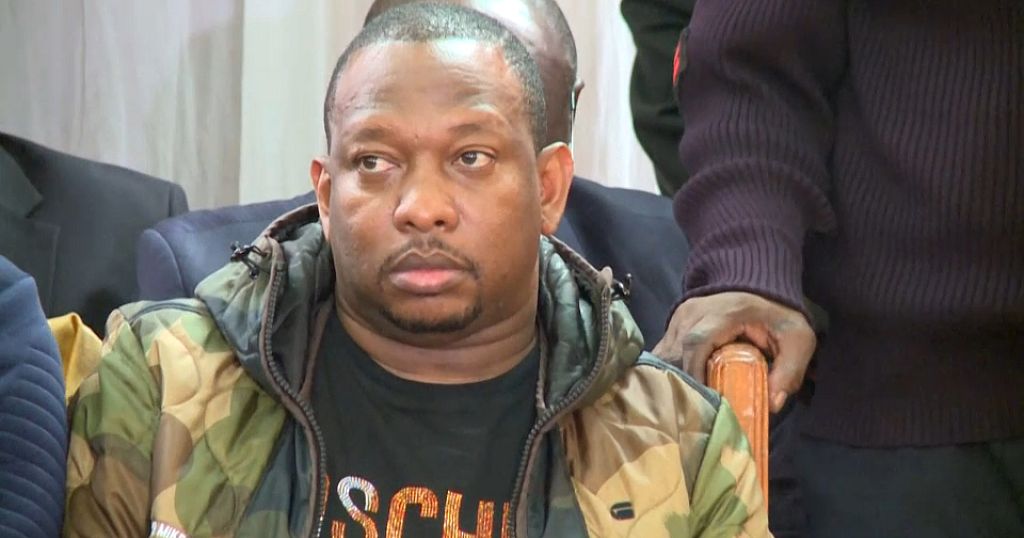President Uhuru Kenyatta’s State of the Nation address on Thursday is eagerly awaited and will be scrutinised exhaustively.
This is not just because it is important in its own right, but his administration is in the throes of some interesting and encouraging developments.
Kenyans want to see whether he shows enough grit and determination to carry them through and his other plans.
Most notably, the public has been stunned by the continuous exposure of scam after scam of varying sizes; so, how much he devotes to that particular vital area will be telling.
There has been much speculation about Cabinet changes and so on but it is important to give a broader and more holistic picture of President Kenyatta’s scorecard and what still needs to be done.
What we have witnessed in the past year or so is some impressive personnel changes and a more assertive approach in decision-making.
For example, the President’s stance on corruption shows he is prepared to walk the talk. Prior to that, there was much talk but not a lot to show for it.
Will he drop poor or mediocre officials and those implicated in scams or just shuffle them like a pack of cards?
If he does the former, will he replace non-performers with people of proficiency and probity?
In short, will he continue to make meritocratic rather than political appointments? The trend of implicated officials hanging on until they are forced out must end. They should stand aside and be put on their defence.
This should not apply to Cabinet secretaries alone; it should be the same for the entire public service.
Here we are with many, many Kenyans suffering from the effects of drought and inadequate famine relief supplies and at the same time witnessing the abject failure of the Galana-Kulalu irrigation project.
This potential grain basket could be just what we need in times of shortfall and drought. What an awful irony!
How much was this the fault of the National Irrigation Board (NIB)? Accountability must take place and those responsible investigated and be made to face the due process of law.
Some past governments have regarded the Auditor-General’s report as an irritant.
Yet again, Auditor-General Edward Ouko is treating the public to a feast of scams — from the Ruaraka land saga to Nairobi Governor Mike Sonko’s secret Sh96 million budget and 12-car entourage and how ward reps in six counties blew millions of shillings on overpriced retreats.
The good thing with the annual report is that it is a definitive and well-researched document and should form the basis of further investigations and prosecutions if applicable.
The President should not only encourage this process but also fight to ensure that no changes in the roles of the DPP and DCI take place.
He would do well to expound on how resources have been increased to build the skills and capacity of the two and, of course, the Judiciary.
It is not just NIB that should be investigated but several other parastatals — such as the Kerio Valley Development Authority.
It will be interesting if he makes any mention of compulsory lifestyle audits for public servants and whether there exists an independent institution to do this.
One of the criticisms of President Kenyatta’s tenure is that he has overseen a massive rise in borrowing due to grandiose projects such as the SGR and Lapsset, the Lamu port project, now seen as a possible white elephant, which, in a number of cases, are proving to be poor value for money.
Will he be open enough with the public to admit this and promise a more prudent fiscal approach? Will he go as far as to announce steps to having a more coordinated macroeconomic policy?
Many are sceptical about the Big Four Agenda, though their aims and objectives are laudable. The reality is that they are largely unaffordable and a more modest set of benchmarks should be set.
Last, but not least, will he propose amendments to the interest rate cap law, which has literally hindered lending to small and medium enterprises?

 General News3 days ago
General News3 days ago
 General News3 days ago
General News3 days ago
 General News3 days ago
General News3 days ago
 General News2 days ago
General News2 days ago
 General News18 hours ago
General News18 hours ago

